Cover Story
Inside Accor’s Roadmap to Global Growth

Integrator Media had an exclusive interview with Camil Yazbeck, Global Chief Development Officer, Accor.
As Global Chief Development Officer for Accor’s Premium, Midscale & Economy Division, can you share your vision for the global expansion of the Group’s diverse brand portfolio?
Accor is a world leading hospitality group, offering experiences across more than 110 countries in 5,600 properties, 10,000 food & beverage venues, wellness facilities or flexible workspaces. In 2023, Accor realigned its divisional structure into two divisions, unified by one cohesive vision. This new structure has optimized our growth and performance, enabling us to deliver exceptional results globally.
Our portfolio is anchored by our 47 brands, including 23 Premium, Midscale & Economy (PM&E) brands, which comprise nearly 90% of our global properties and account for around 80% of our development signings. Last year was a record year for signings, and we’re looking forward to carrying this momentum into 2024 with positive projections for continued growth.
Within the PM&E division, we are proud to have three very popular and longstanding brands with global name recognition – Pullman (premium), Novotel (midscale), and ibis (economy). We are rejuvenating these brands by aligning investment and resource allocation to strengthen brand equity and brand loyalty. At the same time, with conversion presenting as a key lever for growth right now, we have five well-known PM&E brands that are extremely adaptable and efficient for hoteliers to join: Mövenpick, Mercure, Handwritten Collection, ibis Styles and greet.
How does Accor stay ahead of trends to ensure its offerings align with the shifting demands of guests and hotel owners?
We believe that hospitality today is so much more than accommodation – we are actively developing and building holistic experiences for our guests as well as forging trusted and supportive partnerships with our owning partners.
Our vision is to create multi-faceted places – with our hotels at the core – where guests and locals can ’live, work and play,’ across the same project. Our pioneering approach to augmented hospitality means our projects can include different elements; hotel brands, extended stay, branded residences, food & drink, wellness and entertainment, all supported by our loyalty program: ALL – Accor Live Limitless. Hotel owners and investors appreciate this approach as an essential way to optimize revenue, unlock value and ultimately compress their cap rate.
“We know that nothing brings people together like sharing drinks and outstanding food together, so our food & beverage offerings are designed to attract local guests along with travelers.”
The new Couqley French Brasserie at Pullman Dubai Downtown is a perfect example of how we partner with high-profile partners to elevate, infuse energy and increase the flow of visitors into our hotels. With its signature central bar, French garden-inspired booth seating, dining tables under olive trees, lights hanging down from triple-height ceilings, and an exterior terrace directly accessible from the promenade of the Dubai Canal, the venue has become a favorite hotspot among the downtown crowd. This is a strategy Accor is successfully using around the world, to not only create more enriching guest experiences, but to also create greater revenue potential for our hotel owners, investors, and the Accor group.
More specifically, what is your vision for the Middle East Region?
This market is thriving, marked by strong RevPAR performance, a robust economy, and favorable policies that encourage responsible tourism development. Accor has ambitious growth plans for the region, with 60 active projects representing close to 12,000 keys that are expected to open under our Premium, Midscale & Economy brands in the next four to five years. We also have a multitude of projects in development across our luxury and lifestyle brands as well.
Across the Middle East, namely KSA and UAE, the region is showing resilience in the face of rising construction costs for a combination of reasons, including investor profiles in the region, a robust economy and governmental policies and the rise of oil prices. In Saudi Arabia, Accor is one of the most established hospitality developers, having been active in the market for more than 30 years. Since the announcement of Saudi Arabia Vision 2030, Accor has played a key role in the development of tourism, through several diverse projects in key locations across the Kingdom. One of the Vision Realization Programs is The National Transformation Project, which includes development of the tourism and national heritage sectors. There is also a national focus on an identified priority list of 10 destinations by national tourism strategy such as Abha, Hail, Al Jouf, Madinah among others. Accor has a multi-pronged strategy underway to support all of the Kingdom’s objectives for Vision 2030, from expanding our areas of focus with leisure destinations (Red Sea, Al Ula, NEOM), to bringing more brands to second wave cities, to our strategic partnership with the Ministry of Tourism to empower Saudi talents through “Tamayyaz by Accor”.
Governments have a target to achieve based on the country’s vision and we are seeing determination in meeting these targets – there is close collaboration between the public sector and private sector to ensure project delivery remains on schedule. In addition, international consultants are partnering with governments to create attractive destinations and accomplish multi projects across either one or numerous markets.
We are confident the region has favorable tailwinds, ensuring projects will continue despite inflationary and cost pressures. There is a high level of spending power in the region to fund domestic travel and we see great potential in Tier 2 and 3 cities with undiscovered natural beauty, evidenced by Accor’s 2023 signing of a master development agreement with Amsa Hospitality to develop 18 premium, midscale and economy hotels across secondary cities within Saudi Arabia over the next ten years.
With over 20 brands under Accor’s Premium, Midscale, & Economy division, how do you ensure each brand maintains its unique identity while contributing to the overall company strategy?
Accor’s strength is in the broad diversity of our brands – the powerful legacy of our core brands, the huge growth potential of our conversion brands, and the unique opportunities among our tactical and regional brands. Our Premium, Midscale & Economy division is structured in such a way that we have the strength to expand our brands with force and scale, maximizing development profitability and increasing operational performance. Organized across four regions: Europe & North Africa; Greater China; the Americas; and Middle East, Africa, Turkey & Asia-Pacific, our regional teams in each market are able to support hotel operational teams and roll out brand standards, maintaining brand continuity around the world, while being close and accessible to our owning partners and remaining nimble to adjust for market specificities.
How does Accor adapt its brand concepts and business models to suit the unique demands of different regional markets?
We prefer to design brands with characteristics that appeal to travelers all around the world. Pullman, for example, is a brand that works as well in Paris, São Paulo, or Bangkok, as it does in Dubai or Makkah. The ibis brand family, celebrating its 50th anniversary this year, has become the world’s best known economy hotel brand, with 2,600 locations in 70 countries. At the same time, we place a high value on infusing our hotels with local culture and flavors – through unique guest experiences, locally-sourced food and drink, local art and design choices.
For example, Novotel offers four distinct design concepts that allow owning and franchisee partners to select an ideal style that best suits the character of the destination. Mercure on the other hand brings a locally-inspired ethos to each of its hotels, as guests of the new Mercure Dubai Deira will discover; while Mövenpick is an ideal brand for hotel conversions, with its adaptable standards that can easily accommodate local market style and guests expectations, as found at Mövenpick Hotel Jumeirah Village Triangle, a multi-property hospitality community in Dubai which also includes a Novotel and an Adagio.
Accor is a market leader in several regions, including Europe, South America, Middle East & Africa, and Asia Pacific. What are the unique strategies employed in these regions to maintain and grow market leadership?
We continue to deepen our leadership position in our historical markets of strength with Novotel and ibis, while expanding the network of Pullman more widely, including markets where we may not have full exposure. We are also keen to explore more untouched leisure destinations where our forward-thinking brands can deliver Accor’s positive hospitality approach to creating eco-friendly and enjoyable holiday experiences. Another key element of our growth strategy is to address independent hoteliers that are looking for the strength and distribution of a global partner, while maintaining the unique character of the hotels they have created. We launched Handwritten Collection in 2023 in response to a market demand for a collection brand in the midscale category and it is already one of world’s fastest growing midscale collection brands. By the end of this year, we should have 30-40 Handwritten Collection hotels opening and operating.
The key to Accor’s leadership however, in my view, is the way we think like an owner – striving to match the right brand to the right project, thereby giving us the clearest route to meeting the owner’s cost of capital and return on equity (ROE) expectations. Our development teams are comprised of people with experience on the owners’ side. Accor itself has first-hand experience in the owner’s seat and although the Group shifted to a fully asset light business model several years ago, one of our core values is that we continue to think and execute like an owner. This means we bring that balanced perspective while delivering a level of strength and capacity more powerful than what an owner can achieve independently. Our local development teams in the Middle East bring on-the-ground market intelligence, coupled with the strength of our global scale and our relationships with 120+ developers around the world.
What trends do you anticipate will have the most impact on the hospitality industry in the coming years, and how is Accor preparing to address them?
One of the most impactful trends is hotel conversions – the growing desire among independent hotel owners to find a global hospitality partner that can help them grow their business in an increasingly competitive market. Another factor is the current lending environment, which is making access to capital more challenging for developers. In both cases, Accor has emerged as the partner of choice, thanks to our adaptability and commitment to innovation, our seamless transition process, our unmatched spectrum of brands, and our welcoming culture that celebrates authenticity, diversity and entrepreneurialism. Opportunities to convert exist across all of our brands, however we expect certain brands such as Mövenpick, Handwritten Collection, and Mercure, to continue being significant growth drivers in this space.
Second, the trend toward branded residences is expanding beyond luxury and lifestyle – segments which Accor also leads with brands including Orient Express, Raffles, Fairmont, Sofitel and more – into the premium and even midscale categories. Recent examples include Swissotel Doha Corniche Park Towers; Movenpick Resort & Residences Teuta Bay, Montenegro; Novotel Residences Makkah, Saudi Arabia; Pullman Residences Newtown Singapore; and Swissôtel Cesme, Turkey.
Apartment-style, extended stay accommodations are also increasingly attractive to younger generations of travelers who enjoy mixing business trips with leisure pursuits and who want to experience destinations more authentically when they travel. Developers and hotel investors are keen to develop extended-stay properties given the segment’s attractive business model – with lower breakeven occupancies, higher operating margins, and strong returns on investment. Fortunately, Accor has developed an expertise as one of the world’s largest operators of extended stay and serviced apartment properties, with a diverse portfolio that includes 13 brands ranging from economy to luxury, including longstanding market leader Adagio; the refreshingly modern Mercure Living and Novotel Living; and the innovative premium offerings of Swissôtel Living and Pullman Living.
Finally, Accor is also leading the way in sustainable hospitality – a shift that is more than a trend, it is essential for the future of the travel industry. Accor’s development team is committed to creating positive impact – economically, socially & environmentally. We collaborate and engage with our investors, hotel owners, employees, suppliers and guests to undertake the journey together towards net-zero carbon. All our brands operate in line with Accor’s ESG commitments, as well as their own brand-led strategies and initiatives in fostering positive hospitality and environmental action – such as Novotel’s new international partnership with WWF (World Wide Fund for Nature) that will see Novotel champion the protection and restoration of the ocean through science-based action and conservation projects. Another one of our brands, Mantis, recently unveiled plans for three new properties in Bahrain, Saudi Arabia and the UAE. Renowned for its lush, eco-resort experiences and commitment to preserving the communities, wildlife and the environment.
Cover Story
Inside Zoho’s UAE Data Centers!
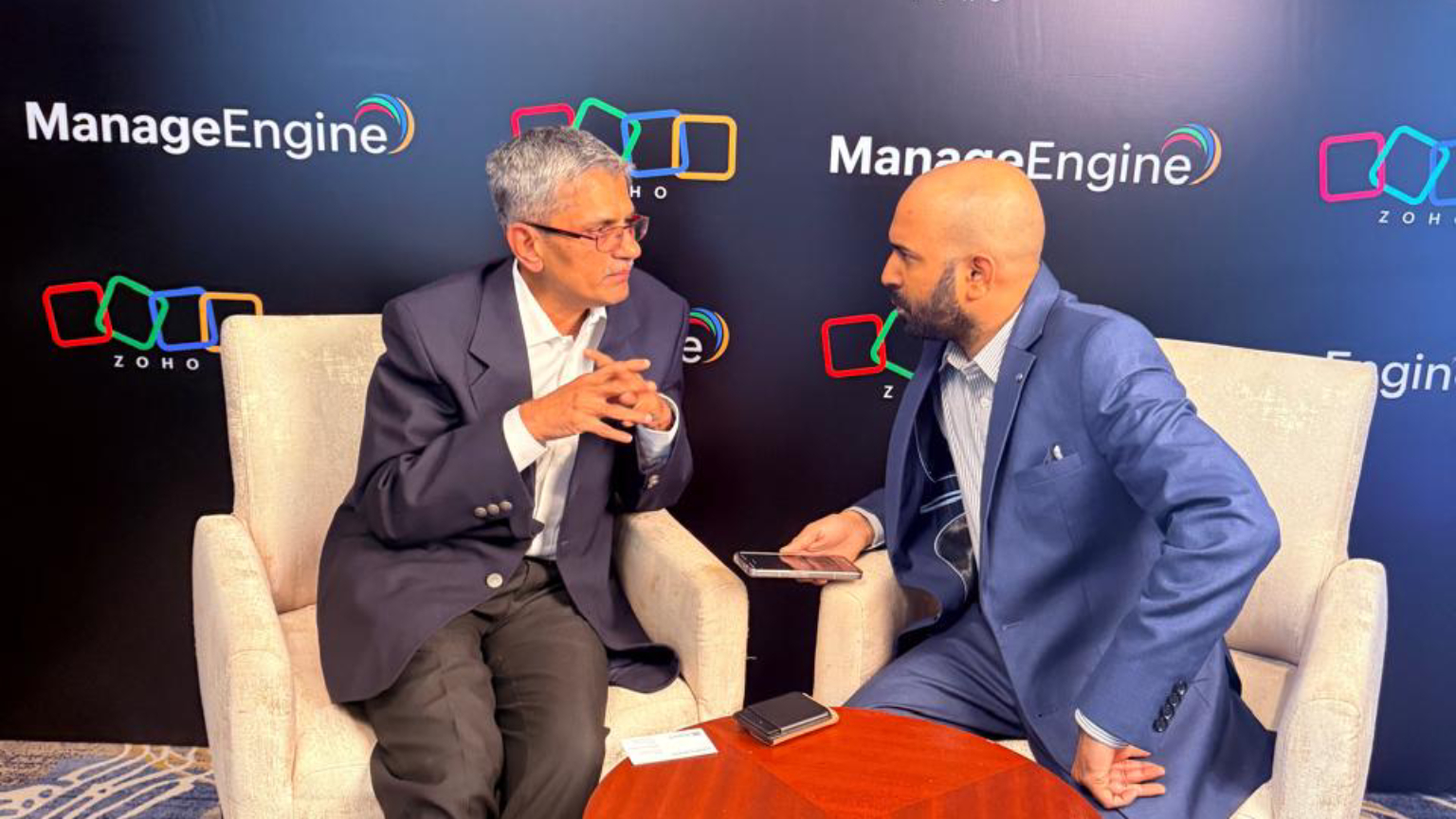
Playing the Long Game in Cloud Infrastructure, Data Centers, Privacy, Cybersecurity, and Growth in the UAE
The Integrator had an interview with Shailesh Davey, Co-founder & CEO, Zoho, during the official launch of their newly opened data centers in the UAE.
Zoho is on an executing path; as they say, it is a disciplined, long-term regional strategy by deploying and right-sizing data centers in Saudi and the UAE, aligning with global trends in data sovereignty and privacy.
The UAE is a priority growth market fueled by regulatory and business-led digitization, supported by local teams and partners. Customers will see faster performance from local hosting, while flagship products Zoho CRM Plus and Zoho Books lead growth, with rapid regulatory feature alignments.
Zoho currently operates more than 18 data centers globally, with the UAE being the latest addition. From a regional perspective, does the Middle East require more data centers, or are the facilities in the UAE and Saudi Arabia sufficient to support Zoho’s growth plans?
We currently operate two data centers in Saudi Arabia, which primarily serve the Saudi market. In the UAE, we have now established two data centers—one in Dubai and another in Abu Dhabi. These facilities have been carefully right-sized based on our expected growth in the region.
We have been present in this market since 2009, so we have a clear understanding of customer adoption patterns, data usage behavior, and growth trajectories. Based on this data, we have ensured sufficient capacity for the next two to four and a half years. Every six months, our teams review capacity utilization and growth rates. If we see demand growing faster than anticipated, we simply expand further.
This approach isn’t new for us—we’ve been doing this consistently since 2006–2007.
Zoho is widely known for its capital discipline and strong stance on privacy. With increasing global rhetoric around cybersecurity, data sovereignty, and regulations—especially in markets like the UAE—do you believe governments are emphasizing certifications due to a trust deficit with large tech companies, or is this part of a broader global shift?
There are a few important factors at play here. First, some of the world’s largest technology companies have built their businesses by monetizing user data. This is openly acknowledged as part of their business model. While it may be legal, it understandably creates discomfort—especially for governments concerned about the data of their citizens, and for individuals who often accept terms and conditions without fully realizing what they are agreeing to.
Second, we are now living in a rapidly evolving geopolitical environment. The shift toward a multipolar world has accelerated significantly over the last couple of years. In this context, it is only practical for governments to introduce regulations that ensure clarity around where data resides, how it is handled, and whether companies are compliant with local laws.
From Zoho’s perspective, this has always aligned with our philosophy. Wherever we set up data centers, we comply fully with local regulations and data sovereignty requirements. Certifications and compliance are simply proof points of that commitment.
Zoho has seen strong growth in the UAE. Which flagship products are driving this momentum, and how does the establishment of local data centers translate into tangible benefits for businesses in terms of innovation and performance?
Let me start with the impact of the data centers. The most immediate and visible benefit is speed. Earlier, customer data was being served from the US, which meant latency due to the physical distance. With local data centers in the UAE, response times are significantly faster. This directly improves user experience, in addition to meeting security and compliance requirements.
In terms of products, our fastest-growing solution in the UAE is Zoho CRM Plus. For any business, sales is a critical function, and CRM Plus is a comprehensive, customer-facing suite that supports sales, marketing, customer support, service, and even project management.
The second major growth driver is Zoho Books, which is widely used by finance and accounting teams. With increasing regulatory requirements around accounting, compliance, and e-invoicing in the UAE, Zoho Books helps businesses stay compliant while maintaining accurate and transparent financial records.
Given the pace at which regulations are evolving, especially in areas like e-invoicing, our local presence allows us to respond very quickly. We see significant long-term potential for both CRM Plus and Zoho Books in this market.
One of Zoho’s recent consumer-focused initiatives Aaratai application has gained strong traction in India and has generated a lot of discussion. Do you see similar B2C-led innovations helping Zoho reach a wider audience in the UAE as well? Could we see such solutions being developed or localized for this market?
This has been an interesting experiment for us. What we’ve essentially done is take the technology we built for the B2B world, adapt it, and make it accessible to B2C users. That’s how this particular app was born, and it received strong tailwinds in the Indian market.
Interestingly, due to the large Indian diaspora in the UAE, adoption naturally extended here as well. Our immediate focus is to ensure that the product is reliable, feature-rich, and delivers long-term value to users.
Once we are confident that the model works at scale, we will look at expanding into other markets where there is strong synergy. Markets with a significant Indian diaspora are a natural starting point, and Europe is high on that list.
Automotive
Goodyear continues support for Team De Rooy in the 2025 Dakar Rally
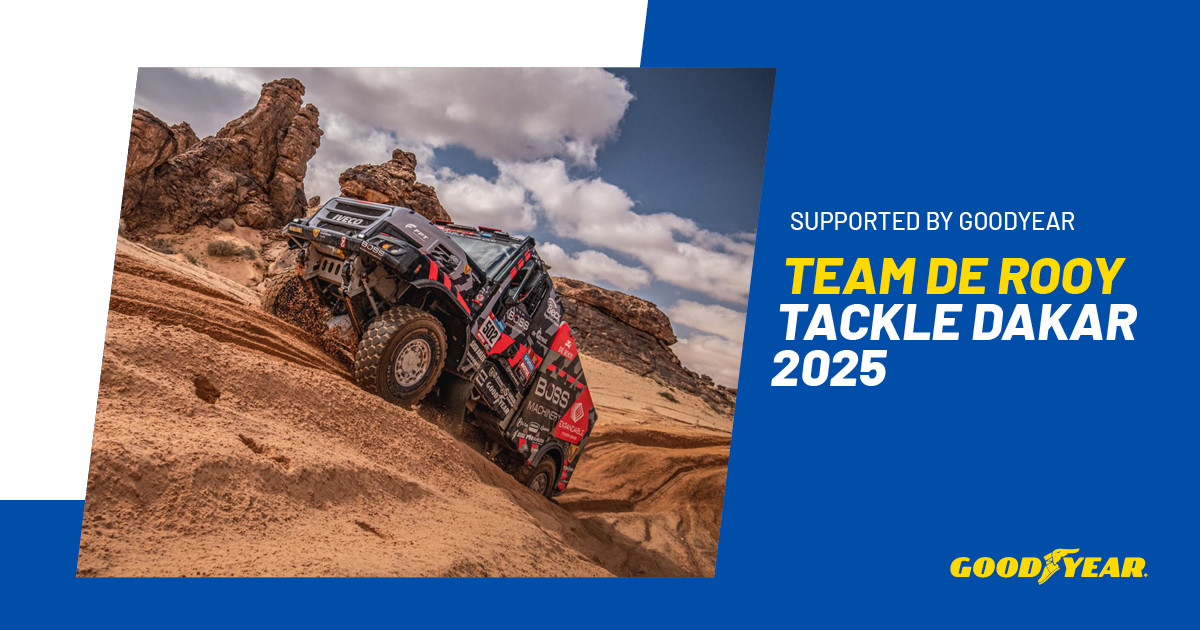
Goodyear continues its partnership with Team De Rooy for the upcoming Dakar Rally 2025. As the official tire supplier, Goodyear will equip the Dutch team with its high-performance Goodyear OFFROAD tires and advanced Tire Pressure Monitoring System (TPMS), helping to ensure reliable performance throughout the rally’s demanding stages. This collaboration highlights Goodyear’s dedication to truck motorsport, combining innovation with proven durability on some of the world’s toughest terrains.
Dakar 2025: new challenges await
The 2025 Dakar Rally, running from January 3 to January 17, will cover nearly 8,000 kilometers, including over 5,000 kilometers of competitive stages, starting in Bisha and finishing in Shubaytah. This edition ramps up the difficulty, featuring an early 48-hour chrono stage that flows into the marathon stage, setting a challenging pace from the outset. In the second week, competitors will tackle the demanding dunes of the Empty Quarter, with over 45% of the course on separate tracks for different vehicle classes, enhancing safety while complicating navigation.
Goodyear OFFROAD tires and TPMS: performance in challenging conditions
Team De Rooy relies on Goodyear OFFROAD tires for their durability and reliable traction across different conditions. Designed to handle heat and challenging surfaces, these tires help reduce heat buildup at high speeds and provide consistent performance on sand, rocks, and steep slopes.
Goodyear’s TPMS offers real-time monitoring of tire pressure and temperature, helping the team make quick adjustments and avoid potential issues. This advanced system helps to minimize downtime and supports better strategic decisions—crucial for maintaining momentum during the rally.
A Legacy of motorsport excellence
Goodyear’s continued support of Team De Rooy highlights its long-standing commitment to truck motorsport. As the title sponsor of the Goodyear FIA European Truck Racing Championship (ETRC), Goodyear uses motorsport as a proving ground for tire technology advancements. The partnership with Team De Rooy reflects this commitment, driving innovation and performance in demanding environments.
Maciej Szymański, Marketing Director Commercial EMEA at Goodyear, commented:
“Our continued collaboration with Team De Rooy for Dakar 2025 underscores our commitment to supporting motorsport teams in extreme conditions. With Goodyear OFFROAD tires and TPMS, we aim to provide the reliability needed to tackle the rally’s challenges. We wish Team De Rooy all the best and look forward to another exciting competition at this iconic rally”.

Cover Story
PLAUD Note Pro: This Tiny AI Recorder Might Be the Smartest Life Upgrade You Make!
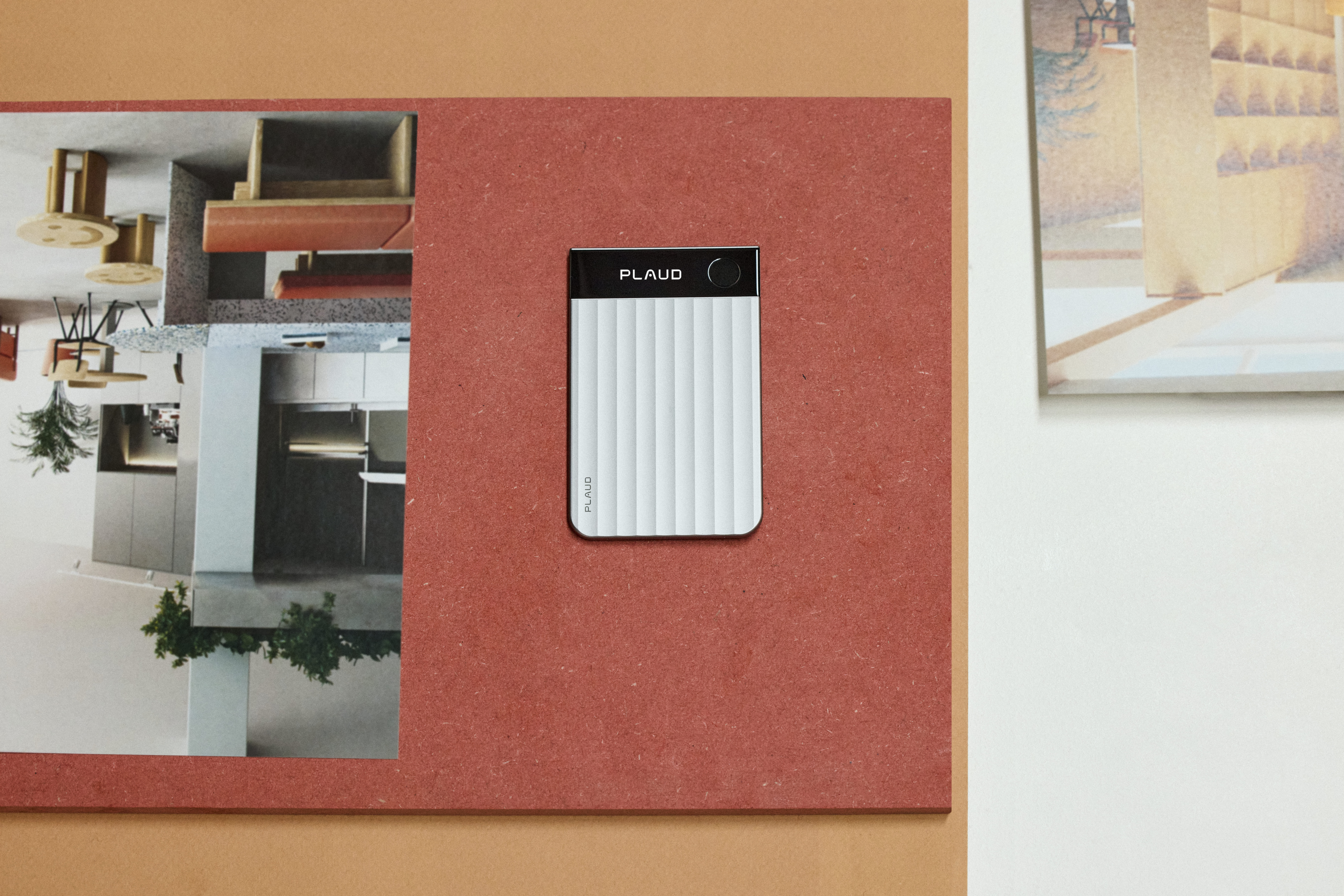
By Srijith KN
I’ve been using the Plaud Note Pro for over three months now, and this is a device that has quietly earned a permanent place in my daily life now. Let me walk you through what it does—and why I say that so?
Well at first I thought this wasn’t going to do much with my life, and by the looks of it Plaud Note Pro looks like a tiny, card-sized gadget—minimal, unobtrusive to carry it around.
With a single press of the top button, it starts recording meetings, classes, interviews, or discussions. Once you end your session, the audio is seamlessly transferred to the Plaud app on your phone, where it’s transformed into structured outputs—summaries, action lists, mind maps, and more.
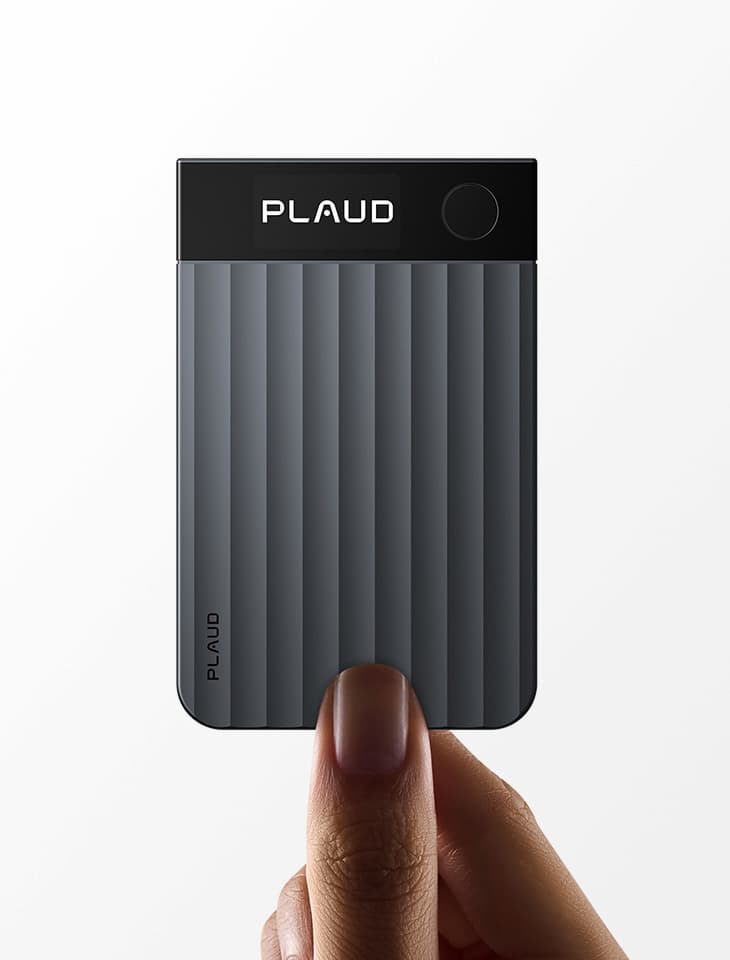
In essence, it’s a capture device that takes care of one part of your work so you can concentrate on the bigger game.
Design-wise, the device feels premium, it features a small display that shows battery level, recording status, and transfer progress—just enough information without distraction. The ripple-textured finish looks elegant and feels solid, paired with a clean, responsive button. It also comes with a magnetic case that snaps securely onto the back of your phone, sitting flush and tight, making it easy to carry around without thinking twice.
Battery life is another standout. On a full charge, the Plaud Note Pro can last up to 60 days, even with frequent, long recording sessions. Charging anxiety simply doesn’t exist here.
Well, my impressions about the device changed once I had an audio captured. I tested this in a busy press conference setting—eight to ten journalists around me, multiple voices, ambient noise—and the recording came out sharp and clear. Thanks to its four-microphone array, it captures voices clearly from up to four to five meters away, isolating speech with precision and keeping voices naturally forward. This directly translates into cleaner transcripts. It supports 120 languages, and yes, I even tested transcription into Malayalam—it worked remarkably well, condensed the entire convo-interview that I had during an automotive racing show that I was into.
Real meetings or interviews are rarely happens in a neat environment, and that’s where I found the Plaud Note Pro working for me. It captures nuances and details I often miss in the moment. As a journalist, that’s invaluable. The app also allows you to add photos during recordings, enriching your notes with context and visuals.
I tested transferring files over 20 minutes long, and the process was smooth and quick. Accessing the recordings on my PC via the browser was equally intuitive—everything is easy to navigate and well laid out.
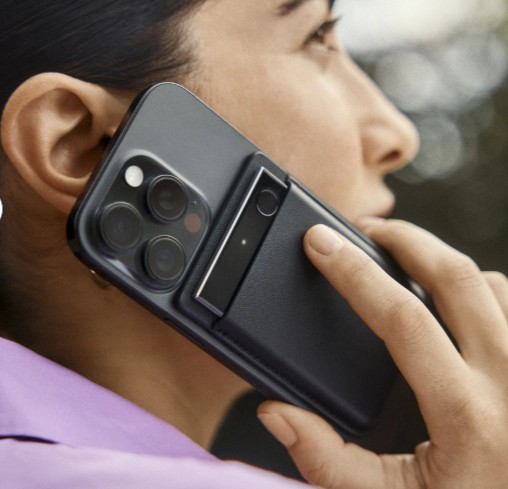
Now to what is inside this tiny recorder. Well, the core of the experience is Plaud Intelligence, the AI engine powering all Plaud note-takers. It dynamically routes tasks across OpenAI, Anthropic, and Google’s latest LLMs to deliver professional-grade results. With over 3,000 templates, AI Suggestions, and features like Ask Plaud, the system turns raw conversations into organized, searchable, and actionable insights. These capabilities are available across the Plaud App (iOS and Android) and Plaud Web.
Privacy is what I happen to see them look at seriously. All data is protected under strict compliance standards, including SOC 2, HIPAA, GDPR, and EN18031, ensuring enterprise-grade security.
What makes the AI experience truly effective is the quality of input. Unlike a phone recorder—where notifications, distractions, and inconsistent mic pickup interfere—the Plaud Note Pro does one job and does it exceptionally well. It records cleanly, consistently, and without interruption, delivering what is easily one of the smoothest recording and transcription experiences I’ve used so far.
I’m genuinely curious to see how Plaud evolves this product further. If this is where they are today, the next version should be very interesting indeed.
“The Plaud Note Pro isn’t just a recorder; it’s a pocket-sized thinking partner that captures the details so you can think bigger, clearer, and faster.”
- Plaud Note Pro is now available for pre-order at https://uae.plaud.ai/pages/plaud-note-pro
- Plaud Note and NotePin are available at https://uae.plaud.ai
-

 Tech News2 years ago
Tech News2 years agoDenodo Bolsters Executive Team by Hiring Christophe Culine as its Chief Revenue Officer
-

 VAR10 months ago
VAR10 months agoMicrosoft Launches New Surface Copilot+ PCs for Business
-
News10 years ago
SENDQUICK (TALARIAX) INTRODUCES SQOOPE – THE BREAKTHROUGH IN MOBILE MESSAGING
-

 Tech Interviews2 years ago
Tech Interviews2 years agoNavigating the Cybersecurity Landscape in Hybrid Work Environments
-

 Tech News7 months ago
Tech News7 months agoNothing Launches flagship Nothing Phone (3) and Headphone (1) in theme with the Iconic Museum of the Future in Dubai
-

 VAR1 year ago
VAR1 year agoSamsung Galaxy Z Fold6 vs Google Pixel 9 Pro Fold: Clash Of The Folding Phenoms
-

 Automotive1 year ago
Automotive1 year agoAGMC Launches the RIDDARA RD6 High Performance Fully Electric 4×4 Pickup
-

 Tech News2 years ago
Tech News2 years agoBrighton College Abu Dhabi and Brighton College Al Ain Donate 954 IT Devices in Support of ‘Donate Your Own Device’ Campaign


















